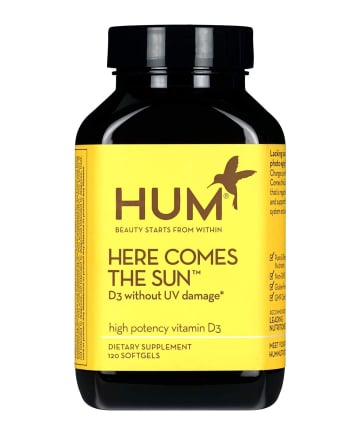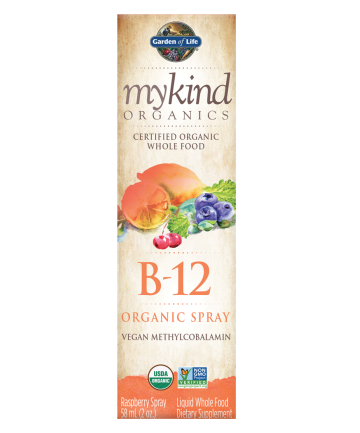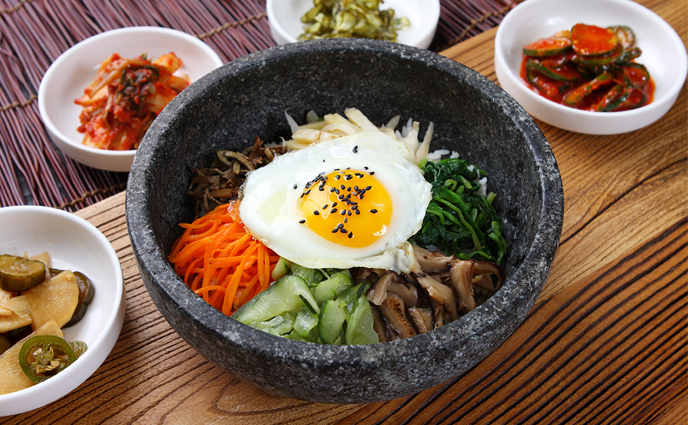There are many reasons behind to switch to a plant-based diet: Some do it for environmental reasons, some for religious, and others for financial or health reasons. And if done correctly, sticking to a vegetarian diet can have some amazing health benefits. As certified nutrition consultant Sarah Considine puts it, "If you are looking to increase longevity and overall wellness, the vegetarian diet is the way to go."
However, there are essentials that veg-heads may miss out on when cutting meat out of their diets. We talked with a few experts to find out which nutrients and vitamins vegetarians may not be getting enough of, and what foods or supplements they should seek out in order to ensure they are getting a nutritionally-fortified diet.
Image via Westend61/Getty
However, there are essentials that veg-heads may miss out on when cutting meat out of their diets. We talked with a few experts to find out which nutrients and vitamins vegetarians may not be getting enough of, and what foods or supplements they should seek out in order to ensure they are getting a nutritionally-fortified diet.
Image via Westend61/Getty
Zinc is important for powering up the immune system so that it can fight off bacteria and viruses.
While vegetarians can get some zinc through the consumption of foods such as beans, nuts, dairy and whole grains, it's not always enough. According to the National Institutes of Health, "the beans and grains [vegetarians] typically eat have compounds that keep zinc from being fully absorbed by the body." Because of this, the NIH informs, "vegetarians might need to eat as much as 50 percent more zinc than the recommended amounts."
Not looking to consume more beans than you can handle? Luckily, the mineral is also available in a variety of multivitamins and supplements (such as the Bulletproof Zinc with Copper, $12.95).
Buy now
While vegetarians can get some zinc through the consumption of foods such as beans, nuts, dairy and whole grains, it's not always enough. According to the National Institutes of Health, "the beans and grains [vegetarians] typically eat have compounds that keep zinc from being fully absorbed by the body." Because of this, the NIH informs, "vegetarians might need to eat as much as 50 percent more zinc than the recommended amounts."
Not looking to consume more beans than you can handle? Luckily, the mineral is also available in a variety of multivitamins and supplements (such as the Bulletproof Zinc with Copper, $12.95).
Buy now
Here's the secret about iron: According to the National Institutes of Health, "Vegetarians who do not eat meat, poultry, or seafood need almost twice as much iron as listed in the table because the body doesn't absorb nonheme iron in plant foods as well as heme iron in animal foods." That's a lot of spinach (hint, hint — a great source of iron)!
Samantha Cassetty RD, spokeswoman for OMG! Nutrition, says, "The simplest way to increase iron absorption from plant-based foods is to include a source of vitamin C with meals." An additional little trick she shares is "to use a cast iron skillet when cooking meals since this will transfer some of the iron to your foods." Considine adds that "lentils, soy beans, pumpkin seeds and a variety of greens" are all great sources of iron.
At any rate, it's important to keep your iron levels up, since low iron can lead to anemia. Symptoms of this condition include a weakened immune system, lack of energy, and trouble concentrating.
Image via Katrin Ray ShumakovGetty
Samantha Cassetty RD, spokeswoman for OMG! Nutrition, says, "The simplest way to increase iron absorption from plant-based foods is to include a source of vitamin C with meals." An additional little trick she shares is "to use a cast iron skillet when cooking meals since this will transfer some of the iron to your foods." Considine adds that "lentils, soy beans, pumpkin seeds and a variety of greens" are all great sources of iron.
At any rate, it's important to keep your iron levels up, since low iron can lead to anemia. Symptoms of this condition include a weakened immune system, lack of energy, and trouble concentrating.
Image via Katrin Ray ShumakovGetty
Vitamin D is a nutrient that plays a vital role in bone health, as it helps the body absorb the calcium that's coming in. However, this vitamin is more than just calcium's assistant; it's also important on its own for proper muscle and nerve function. According to the National Institutes of Health, "vitamin D deficiency leads to osteomalacia, causing bone pain and muscle weakness."
Luckily, it's not hard to boost your intake: Considine says that the vitamin "can be found in mushrooms or even just thirty minutes of daily sun exposure." And if lots of sun (or mushrooms) aren't for you, you can always go the supplement route. "I often recommend a vitamin D3 supplement," says Cassetty, explaining that it can be difficult to find naturally in many foods. Hum Nutrition has the Here Comes the Sun Vitamin D Supplement, $20, if you're looking for a popular option.
Buy now
Luckily, it's not hard to boost your intake: Considine says that the vitamin "can be found in mushrooms or even just thirty minutes of daily sun exposure." And if lots of sun (or mushrooms) aren't for you, you can always go the supplement route. "I often recommend a vitamin D3 supplement," says Cassetty, explaining that it can be difficult to find naturally in many foods. Hum Nutrition has the Here Comes the Sun Vitamin D Supplement, $20, if you're looking for a popular option.
Buy now
Vitamin B12 is incredibly important for maintaining healthy neurological functions, yet this particular nutrient is typically only found in animal-based food products. In order to get your daily fill of Vitamin B12 — which, according to the National Institutes of Health is also required for "proper red blood cell formation" as well as DNA synthesis — your best bet is to take a supplement. Considine names Garden of Life Organic Vitamin B-12 Spray, $12.94, as one to try.
Buy now
Buy now









